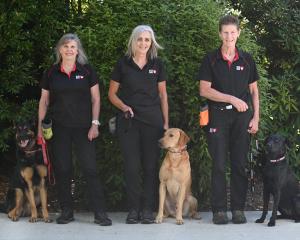Treatment through the Southern healthcare system is akin to playing Russian roulette, a cancer patient who has now gone private says.
The patient, who did not wish to be named, is using his KiwiSaver to fund surgery costs of $30,000, rather than wait for the public system that would take weeks, or even months.
If people were diagnosed with cancer, he advised them to either move to a different part of the country, or go private.
"The medical system was a shock — it was delay, delay, delay," he said.
This follows the release of a Health and Disability Commissioner report last week that found hundreds were harmed by delays for non-surgical cancer treatment in the Southern District Health Board, now Te Whatu Ora Health New Zealand Southern, between 2016 and 2022.
The man’s struggle began in December, when he was on holiday with his grandchildren and a phone call alerted him to an unusual blood test result.
Assuming it was probably to do with cholesterol, he was not overly worried until internet searching led him to realise the issue was cancer.
More testing indicated the cancer was stage three, but had not metastasized — yet.
"You know immediately you’re a ticking clock."
Any day the cancer could become untreatable, so it was important to be treated quickly.
At various stages he was told his file could not be found, that staff with information on his situation were away and that he had not yet been triaged.
"They told me to respect the process, even if the process kills you".
He had been told the wait for surgery would be six to eight weeks.
Three weeks passed, there was no information about when a date might be or what delays were possible, factors people needed to know to make life and death decisions, he said.
A four-week delay would reduce his chances of survival by 10%.
It may not sound like much, but it was "like playing Russian roulette".
He finally decided to go private, and was informed on Wednesday his surgery would take place next week.
Yesterday, he was finally contacted by the public health system, and told he was not yet on the waitlist and he needed to see a surgeon to confirm the specialist’s diagnosis.
Services were increasingly constrained, he was told.
This would have pushed the date for public surgery out by at least a month longer than expected, and if he had not already booked his private surgery, he would have been completely beside himself.
Although he now he faced financial stress, and rewarded the public system for being inadequate, he advised others to do the same rather than gamble with their lives.
"I just want to say to people, if you don’t have access to private medical care, beg, borrow or steal the money and go private."
A Te Whatu Ora spokesman said it apologised to those who experienced distress and delays in their cancer treatment.
"We encourage any patient to please contact their treating team to discuss any concerns or questions."
It accepted the report’s decisions and was implementing recommendations.
"Our staff are doing the best with the resources available to them, but we recognise the need for more staff, and for us to work in different ways to reduce waiting times for cancer services — we are doing that with the health reforms."
Some patients would have to receive care in another district, but they would get the care they needed, the spokesman said.












